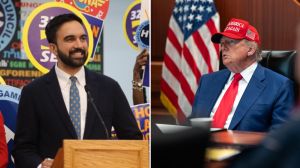Durable technology must for green energy
Minister for new and renewable energy (MNRE) Farooq Abdullah on Saturday cautioned Corporate India against choosing cheap energy technologies that could jack up their profits in the short term but might not deliver in the long run. He said the Jawaharlal Nehru National Solar Mission (JNNSM) offered opportunities for Indian players to forge technological collaboration …
Minister for new and renewable energy (MNRE) Farooq Abdullah on Saturday cautioned Corporate India against choosing cheap energy technologies that could jack up their profits in the short term but might not deliver in the long run. He said the Jawaharlal Nehru National Solar Mission (JNNSM) offered opportunities for Indian players to forge technological collaboration with overseas players looking for new markets.
Do not jump for cheap technology. Technology must be such that it could stand the test of time, Abdullah said while speaking as chief guest at the FE-EVI Green Business Leadership Award ceremony here on Saturday. We hope that we will have easier transfer of technology, he said,adding that the guidelines for capacity addition under the JNNSM would be announced by June 16.
Although these guidelines had been finalised after consultations with all stakeholders,the government would take cognisance in case any shortcomings were pointed out,he added.
Under JNNSM,India plans to add 20,000-mw grid-connected solar power generation capacity by 2022. The bulk of this capacity will be solar thermal. While India is a big exporter of photovoltaic solar equipment,it will need to import solar thermal technology,at least in the initial phase.
Speaking on the occasion,guest of honour RK Pachauri,director-general of The Energy and Resources Institute (Teri),and chairman of the Inter-governmental Panel on Climate Change,expressed satisfaction that renewable energy projects were a key component of the recovery packages prepared by countries like the US and China in the wake of the global economic recession.
The first ever FE-EVI Green Business Leadership Awards,distributed by Abdullah on the World Environment Day,felicitated 27 companies at a glittering ceremony attended by whos who of the policymakers and industry in the Capital.
The event was organised jointly by The Financial Express and Emergent Ventures India,a climate change and sustainable development advisory firm,along with knowledge partner Indian School of Business,Hyderabad.
Top three award winners (not ranked as such) were selected from each of the nine energy intensive sectors like cement,chemicals & fertilisers,iron & steel,metals & mining,oil & gas,paper & pulp,power,banking,and IT/ITeS.
The award winners were chosen after a survey of 66 top-ranking companies selected from these nine sectors. The findings of the survey were released in the form of FE-EVI Green Business Survey 2009-10.
The survey found that 83 per cent of the respondent companies considered climate change as an important issue and had a mechanism to track their initiatives in this regard,which implied there was higher awareness and prioritisation of the issue. While every second company monitors its greenhouse gas (GHG) emissions,only one out of three companies gets its inventory verified. Three out of every four companies realise that the effects of climate change could still be altered and thus see this both as a risk and an
opportunity.
The survey,which is a sequel to FE-EVI Green Business Survey 2008-2009,focuses on actions being taken by the India Inc on climate change management and maps movement of climate change issues from CSR to the central strategy level.
The survey also identifies best practices,highlights trends within business sectors and subsequently identifies green leaders amongst these business sectors.
On the way forward,the survey says companies can start with simple initiatives such as using duplex printing; video conferencing instead of travelling,reducing power consumption and switching to green energy supply.
With time,companies can opt for product and/or process initiatives leading to reduction in their carbon footprint. Besides,companies can also increase awareness not just among their employees but also among other stakeholders.
Towards the end of the event,eminent industry leaders took the floor and deliberated on Post-Copenhagen: Expectations from Indian Industry.
Panelists included veterans like HSBC CEO Stuart Davis,ONGC CMD R S Sharma,Coal India CMD Partha Bhattacharya and former power secretary Anil Razdan.
Senior members of The Financial Express,Bloomberg UTV and Emergent Ventures India also participated in the panel
discussion. FE



- 01
- 02
- 03
- 04
- 05




























